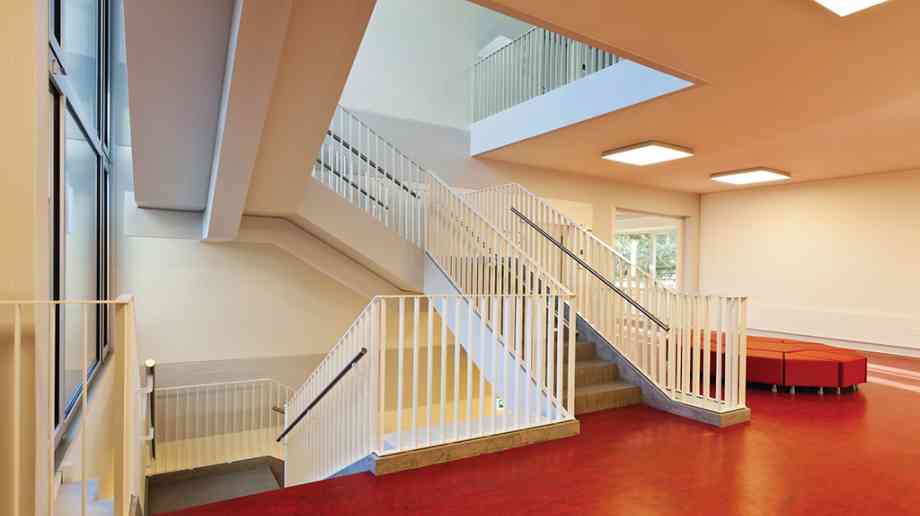
Investing in the school estate
Since the Chancellor announced in the Spring Budget that £216 million will be invested into refurbishing existing schools there have been concerns over whether this sum will be enough
The Chancellor Philip Hammond announced in the Spring Budget that £216 million will be invested in order to rebuild and refurbish existing schools.
However, there has been scrutiny over whether this sum will be enough to bring all schools to an acceptable standard, and even more criticism over “wasted” funds being allocated to build free schools.
Is £216 million enough?
The investment into improving old schools is said to take the total sum which is being used for this purpose to £10 billion.
However, according to the National Audit Office (NAO), a property data survey by the Department for Education suggests that it would amount to £6.7 billion to return all school buildings to a satisfactory or better condition.
Not only this, in order to bring parts of school buildings from a satisfactory to a good condition, it will cost a further £7.1 billion.
According to the NAO, the most common major defects in schools which need attention are problems with
electrics and external walls, which means it is highly important that these problems are fixed.
It is also estimated that the cost of dealing with such defects will double between now and 2021, even with current levels of funding because many buildings are near the end of their useful lives with most of the school estate being over 40 years old.
In addition to this, 60 per cent of the estate is believed to have been built before 1976.
The National Union of Teachers commented on the investment at the time saying that the money proposed for school refurbishment will be welcome “providing it is actually new money and will be spent on ensuring that schools are fit for purpose and safe from dangers of asbestos”.
They also referred to the NAO’s findings saying that despite the initial funds announced, they will “require much
more substantial investment from the government”.
Rolling out free schools
In addition to funding for the refurbishment of schools, Hammond announced that there would be £320 million allocated to open 140 new free schools, 30 of which are expected to open by September 2020.
This announcement received mixed reviews from those in the education sector, which included the general secretary of the National Union of Teachers (NUT), Kevin Courtney, who described the move to put funding into free schools as an “irresponsible waste of money”, saying there is “absolutely no need” for it.
He went on to say that the government is going to “pour” extra funding into the opening of new free schools and grammar schools instead of tackling the “crisis of their own making”.
Dr Mary Bousted, general secretary of union ATL, is also on side with the NUT, stating that the “government persists in wasting money by allowing free schools to open in areas where there is no shortage of places”.
She added that the National Audit Office (NAO) found that it costs “far more” to create a place in a free school than it does in a mainstream school, saying that teachers and heads in existing state schools “will be dismayed to see the chancellor throwing more money at free and grammar schools”.
Dr Bousted did go on to comment, however, that it is “good news” that the government is providing £216 million to improve the quality of school buildings.
Despite industry concerns, Prime Minister, Theresa May stated that the rolling out of new free schools is part of her “personal mission” to “increase the capacity and diversity of the school system so that there is a good school place that caters to the individual needs and abilities of every single child”.
Education secretary Justine Greening is also in favour of rolling out free schools, and in a statement, she said that this plan will ensure that “schools work for everyone.”
She went on to say that the free schools will create the extra school places that children need and offer a “real choice, and a real diversity of schools”.
Greening concluded that the free schools programme is “vital” in order to make sure that parents continue to have the education choices that they want for their children.
Creating a property firm
Following on from the recent announcement to invest £320 million into the construction of free schools across England, a new public property company has been appointed by the government to assist in building the new schools.
The government-owned firm, LocatED will acquire land and buildings across the country to help build 500 new free schools by 2020, and create 600,000 new school places by 2021.
They will operate with a £2 million budget, which makes it one of the largest purchasers of land in the UK, and will act on behalf of the government to secure the right to sites they believe are suitable as a school ground, at the right price in order to enable the free schools to open.
At the time, School Systems minister, Lord Nash, commented that LocatED has the skills and expertise to find and secure land and buildings in order to ensure that the “free school’s ambition becomes a reality”.
He added that “with 29 per cent of free schools inspected rated ‘outstanding’ by Ofsted - LocatED will play a vital role in helping us create thousands more good and outstanding school places for future generations of children”.
The pressure to build hundreds of free schools is part of the government’s aim to improve social mobility and good school places across the country.
ATL’s general secretary, Dr Bousted, believes that the creation of LocatED is a result of the government “finally” recognising that the expansion of the free schools programme has “got out of hand and well over budget”, and that the firm would not have been needed had the government “allowed local authorities to have the control over the planning for the additional school places they need”.
She added: “We hope that LocatED will behave more responsibly with tax payers’ money when purchasing land and buildings for the new schools that we need.
“We also hope they will be accountable if costs are excessive, such as the £7.3 million spent on an unsuitable site which was only worth £3 million, or the extortionate rents paid by the Bolton Wanderers Free School.”
Further Information:Latest News
03/11/2025 - 10:04
The government has launched a new campaign supported by Sport England that aims to help parents discover simple ways to build movement into daily life during the winter months.
03/11/2025 - 09:55
Nearly eight in ten UK teachers have had to rethink how they set assignments because of Artificial Intelligence (AI), according to a new British Council survey.
31/10/2025 - 10:12
A growing number of UK children are now eligible for Free School Meals (FSM), yet most still aren’t taking advantage of them on a daily basis, new research reveals.
30/10/2025 - 01:28
In the wake of the Raac crisis, the DfE spent £5 million on research into the condition of school buildings, which is due to conclude in spring 2026.
30/10/2025 - 01:09
Malmesbury Primary School in Wiltshire has submitted plans for a major expansion, funded by entrepreneur James Dyson.







